Related Research Articles
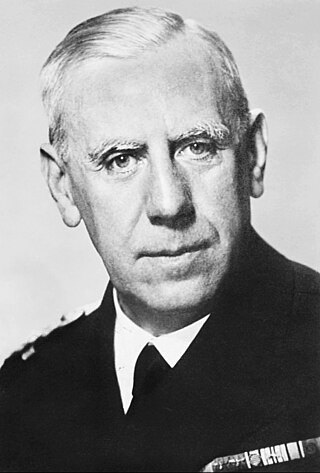
Wilhelm Franz Canaris was a German admiral and the chief of the Abwehr from 1935 to 1944. Initially a supporter of Adolf Hitler and the Nazi Party, Canaris turned against Hitler and committed acts of both passive and active resistance during World War II following the German invasion of Poland in 1939.

Captain Sir Mansfield George Smith-Cumming was a British naval officer who served as the first chief of the Secret Intelligence Service (SIS).

William Joseph "Wild Bill" Donovan was an American soldier, lawyer, intelligence officer and diplomat. He is best known for serving as the head of the Office of Strategic Services (OSS), the precursor to the Bureau of Intelligence and Research and the Central Intelligence Agency (CIA), during World War II. He is regarded as the founding father of the CIA, and a statue of him stands in the lobby of the CIA headquarters building in Langley, Virginia.

The Main Directorate of the General Staff of the Armed Forces of the Russian Federation, formerly the Main Intelligence Directorate, and still commonly known by its previous abbreviation GRU, is the foreign military intelligence agency of the General Staff of the Armed Forces of the Russian Federation. The GRU controls the military intelligence service and maintains its own special forces units.
Tactical or battlefield intelligence became vital to both sides in the field during the American Civil War. Units of spies and scouts reported directly to the commanders of armies in the field, providing details on troop movements and strengths. The distinction between spies and scouts was one that had life or death consequences: if a suspect was seized while in disguise and not in his army's uniform, he was often sentenced to be hanged. A spy named Will Talbot, a member of the 35th Battalion, Virginia Cavalry, was left behind in Gettysburg after his battalion had passed through the borough on June 26–27, 1863. He was captured, taken to Emmitsburg, Maryland, and executed on orders of Brig. Gen. John Buford.
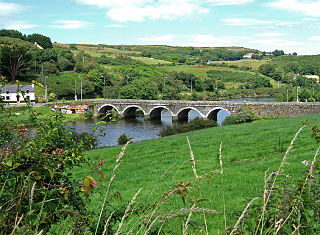
Skibbereen is a town in County Cork, Ireland. It is located in West Cork on the N71 national secondary road. The River Ilen runs through the town; it reaches the sea about 12 kilometres away, at the seaside village of Baltimore. Located in a tourist area, Tragumna beach is nearby.
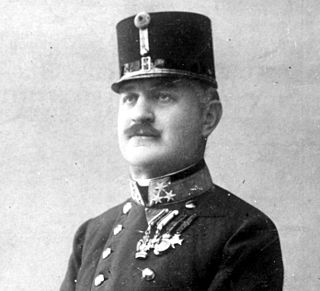
Alfred Redl was an Austro-Hungarian military officer who rose to head the Evidenzbureau, the counterintelligence wing of the General Staff of the Austro-Hungarian Army. He was one of the leading figures of pre-World War I espionage; his term in office was marked by radical innovations and the use of advanced technology to ensnare foreign spies.

William Wickham PC PC (Ire) was a British spymaster and a director of internal security services during the French Revolutionary Wars. He was credited with disrupting radical conspiracies in England but, appointed Chief Secretary for Ireland, failed in 1803 to anticipate a republican insurrection in Dublin. He ended his career in government service in 1804, resigning his post in Ireland where, privately, he denounced government policy as unjust and oppressive.
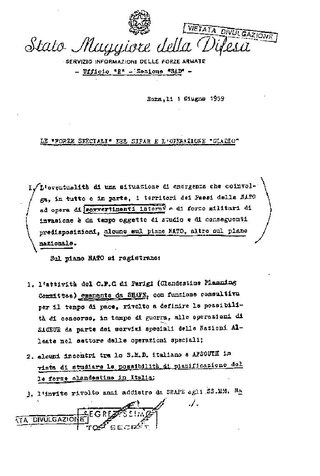
Operation Gladio was the codename for clandestine "stay-behind" operations of armed resistance that were organized by the Western Union (WU), and subsequently by NATO and by the CIA, in collaboration with several European intelligence agencies during the Cold War. Although Gladio specifically refers to the Italian branch of the NATO stay-behind organizations, Operation Gladio is used as an informal name for all of them. Stay-behind operations were prepared in many NATO member countries, and in some neutral countries.

Jack Soble was a Lithuanian who, together with his brother Robert Soblen, penetrated Leon Trotsky's entourage for Soviet intelligence in the 1920s. Later, in the United States, he was jailed, with his wife Myra, on espionage charges. He was born in Vilkaviskis, Lithuania as Abromas Sobolevicius and sometimes used the name Abraham Sobolevicius or Adolph Senin.
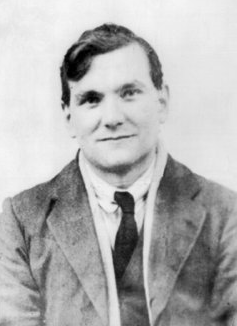
Maurice Twomey was an Irish republican and the longest serving chief of staff of the Irish Republican Army (IRA).

Thomas Hales was an Irish Republican Army (IRA) volunteer and politician from West Cork.
Daniel "Sandow" O'Donovan, was a leading member of the Irish Republican Army during the Irish War of Independence.
Projekt-26, best known as P-26, was a stay-behind army in Switzerland charged with countering a possible invasion of the country. The existence of P-26 as secret intelligence agencies dissimulated in the military intelligence agency (UNA) was revealed in November 1990 by the PUK EMD Parliamentary Commission headed by senator Carlo Schmid. The commission, whose initial aim was to investigate the alleged presence of secret files on citizens constituted in the Swiss Ministry of Defence, was created in March 1990 in the wake of the Fichenaffäre or Secret Files Scandal, during which it had been discovered that the federal police, BUPO, had maintained files on 900,000 persons.

Niklaus Leodegar Franz Ignaz von Bachmann was a Swiss general who fought in the Napoleonic Wars.
Major Cecil Aylmer Cameron was a British Army officer and spymaster and also a central figure of a notable fraud trial of 1911.

The Institute for Intelligence and Special Operations, popularly known as Mossad, is the national intelligence agency of the State of Israel. It is one of the main entities in the Israeli Intelligence Community, along with Aman and Shin Bet.
Cork X Southwest Music & Arts Festival was an annual festival in Skibbereen, West Cork, Ireland.
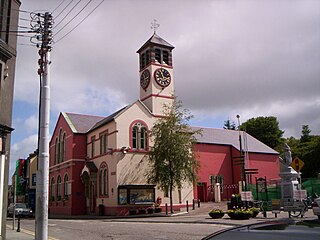
Skibbereen Town Hall is a municipal building in The Square at Skibbereen, County Cork, Ireland. It is currently used as a community events venue, hosting concerts and theatre performances.
References
- 1 2 3 4 5 6 7 8 9 10 "Colonel Albert Bachmann". The Telegraph. London. 4 May 2011. Retrieved 16 November 2011.
- 1 2 3 4 "Swiss spymaster settled in Cork after his schemes earned notoriety". The Irish Times. 14 May 2011. Retrieved 12 May 2011.
- ↑ Foppa, Daniel (21 April 2011). "Der Spion, der aus den Alpen kam". Berner Zeitung.
- ↑ "Albert Bachmann". Hommages.ch. Archived from the original on 2 May 2012. Retrieved 18 November 2011.
- ↑ Collins, Daire (8 July 2021). "Where a Swiss spy built the perfect hideout from nuclear war". bbc.com. BBC. Retrieved 16 July 2021.
- 1 2 3 4 5 Childs, Martin (19 July 2011). "Colonel Albert Bachmann: Swiss spymaster whose paranoid fantasies embarrassed his government" . London: The Independent. Archived from the original on 2011-07-22. Retrieved 12 May 2012.
- ↑ Grimes, William (7 May 2011). "Albert Bachmann, a Colorful Swiss Spymaster, Dies at 81". The New York Times.